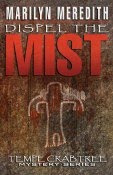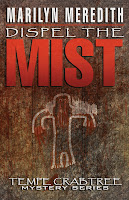My Writing Process
For each of my two series I have a manila folder jam packed with newspaper clippings, magazine articles and handwritten notes. For my Deputy Tempe Crabtree series it’s filled with small town crimes, crimes in mountain communities, anything to do with our local Indians and Indian legends along with ideas that’ve popped into my head. For the Rocky Bluff P.D. series, I collect larger city crimes that are mostly handled by police departments rather than the sheriff’s department, police procedure, funny things that happen in police departments, beach city crimes, interesting things about beach communities.
When it’s time to write a new book if I haven’t already gotten an idea, I peruse the pertinent folder and begin pulling articles out that interest me. Once I think I have a clue where I’m going, I may start doing some more research on the Internet concerning whatever it is I plan to write about.
The next step is creating the characters who will inhabit the book. In my Deputy Tempe Crabtree books of course there’s always Tempe and Hutch. I have to figure out who is going to be murdered and why, who wanted to see the person dead–at least three or four who could’ve done it. Of course there has to be a story around each of them. I like it best when I can use an Indian legend that works with or drives the story. In my latest, Dispel the Mist, what I wanted to include in the mystery was the legend of the Hairy Man. And of course I did.
In the Rocky Bluff P.D. I have an group of people, police personnel and their families. Along with the crime or crimes, I have to decide just who I’m going to showcase. I always want to be able to explore how whatever is going on affects the family and what is happening with the family affects the job. Fortunately, I have a lot of friends and relatives in law enforcement. Some I can observe, others I ask.
All the character information I write down on a legal pad. I write other things down too, just enough to get me started.
Once I really begin writing, it’s on the computer, but as other ideas come to me I’ll jot them down too. It’s amazing how, as I’m writing, things begin to open up to me and I begin to know more and more where I’m going.
I try to write every morning except Sunday. When I’m really going strong, I might write most of the day. I always stop in the middle of a scene so when I get back to the computer I know exactly what I’m going to write next.
Somewhere in the middle of all this, I start reading chapters to my critique group who sort of act like my first editor.
Of course I’m going back over chapters all the time to make sure everything is where it ought to be and I haven’t left anything out.
When I think it’s done I send it off to an editor to look for mistakes and inconsistencies. Once I’ve fixed those I send the manuscript off to my publisher where it is edited once again.
That is my writing process from start to finish. It would be easier if I wasn’t always promoting a book from the other series while writing and if I didn’t have to do all the things everyone else does like washing, cleaning, cooking and running errands. I have it easier than many of my writing friends though, who are still working at full-time jobs. So I’ll count my blessings.
Marilyn
http://fictionforyou.com




